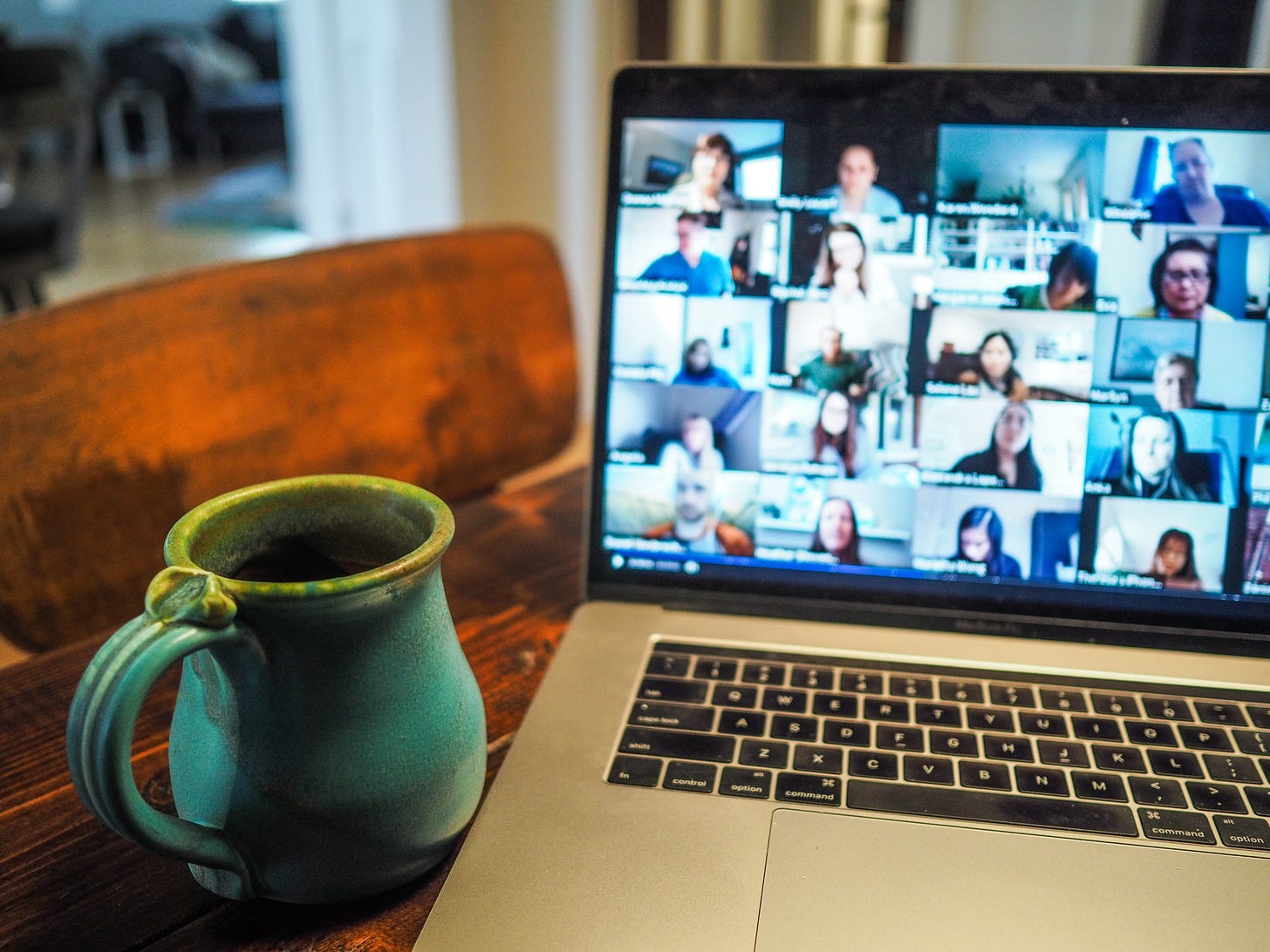How and Why We Ran a Remote Research Mini-Retreat
New Podcast Alert…
A new episode of the Research at Scale podcast is out.
I spoke to Mitch Hollis about how he launched the Research Ops practice at Ticketmaster. Enjoy! 🎧
Late last year, I ran our team’s first UX research mini-retreat.
The goals of this time together were to:
Work out the details of our 2021 work
Improve our research craft
Grow closer as a team
I’m yet to collect thorough feedback about the experience, but I thought it would be worth sharing why and how I put together this mini-retreat.
Why a Mini-Retreat?
Zapier is a fully distributed company. Our remote team gathers a few times a year for retreats, but the pandemic forced us to cancel in-person gatherings in 2020.
As the year drew to a close, I felt that our research team needed to disconnect from the regular flow of work. We couldn’t gather in the same location, but I thought that some time focused on long-term initiatives and team bonding would help us start 2021 with good momentum.
As I considered possibilities for this disconnected period, a few ideas came to mind:
I wanted the team to spend time discussing our 2021 research plans. The more we questioned, synthesized, and debated our goals, the more chance we had to make a bigger impact in the ensuing twelve months.
Improving the research craft at a company is often left to individuals. Attending a conference alone can be helpful, but I wanted our team to grow collectively.
To have even more success as a UXR function, we needed to become a better team. Time away from the rest of the company could help us more deeply know each other and determine improved collaboration methods.
The Mini-Retreat Structure
I decided to book two days for the mini-retreat. I felt that one day would be too short to achieve our goals; three days would be a drag for a remote gathering.
I also limited our schedule to five and a half hours maximum each day (including breaks).
Researchers were not expected to do any work aside from the retreat. Filling those hours with regular work would take away from what we set out to achieve with our time together.
Another critical addition to the mini-retreat was….treats! On each day, team members received a meal budget to order delicious goodies. Food is an important factor for changing the feel of an experience.
Here’s a screenshot from my planning doc showing how I structured our time.
Day One
I set out to achieve one big goal on the first day: solidify our 2021 research plans.
The UXR team did a lot of pre-retreat work to ensure that our planning discussion was productive. At the mini-retreat, it was mainly a case of synthesizing our knowledge and deciding the next steps.
For this type of deep collaboration, I determined that two long sessions were ideal. I think the planning time worked out well in the end.
Additionally, we spent the start of the day in a fun AMA getting to know each other better. I’d initially intended to create working agreements for that first session; I changed my mind because I thought three intense sessions would be too much of a drain.
Between each session, I added lengthy breaks. Thinking is hard work: the brain needs adequate recovery time.
Day Two
We kicked off the second day by watching an intriguing talk from an experienced UXR leader. The speaker then joined us for Q&A and discussion on the topic.
Bringing in an experienced, external voice can work wonders. I wanted our speaker to present familiar yet challenging ideas to inspire collective learning.
Our annual retro and holiday social rounded out the mini-retreat. Each of these sessions looked very different, but both focused on bringing us closer as a team.
Reflections On The Mini-Retreat
As mentioned earlier, I still need to get feedback from the team about the mini-retreat. From my perspective, we made lots of progress on all of our goals.
Even setting aside the purpose of the mini-retreat, the disconnection from daily tasks gave our team room to withdraw and reflect. Many people aren’t afforded this opportunity in the course of their work.
I’m planning on making this an annual initiative. I’m sure that the next iteration will evolve for the better, but I feel positive about this first try.
Over to You
Have you run a remote retreat/off-site for your team? What worked well and what didn’t?
I’d love to learn from you. Please share your experience. I want to continue improving how I structure future versions for our team.
Sign up to receive future posts via email. 📬






